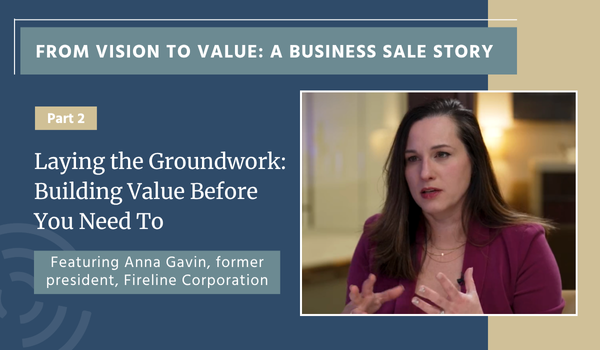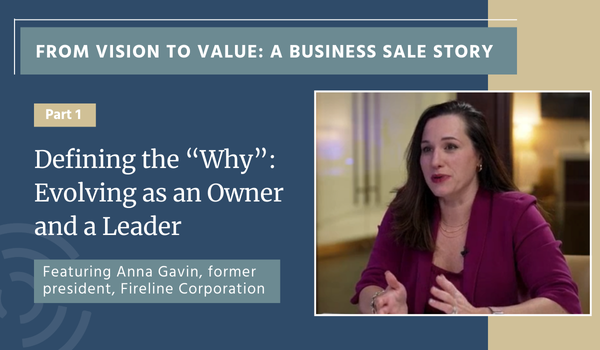Most sellers will sell only one company in their lifetime. No matter what led to the decision to sell, the process of selling a business is a very emotional one. When considering whether or not to sell the business, the business owner experiences primarily three emotions.
The first pre-sale emotion is confusion. Am I doing the right thing? What is my business worth? Will I have enough money once I sell the company? These are all legitimate emotions.
The second emotion is fear. What if the business doesn’t sell? What if people find out that I am selling the business? What if no one wants my company? All of these emotions are also to be expected.
The third emotion is guilt. What are my employees going to think of me after I sell? Am I letting my family down by selling the business? Will my current employees lose their jobs? These are very difficult emotions with which to deal.
Then, the process to sell the business begins. You have selected an investment banker, and they are pressing hard to take the business to the market. So many questions and so much information sharing is required in this process. A new set of emotions enters the picture once the deal process starts. The anxiety sets in. What is the sale process going to be like? Will anyone find out before I am ready to share the news?
Next the emotional high occurs – Euphoria – as the letter of intent is signed. However, this is a false emotional high because the “real work” of due diligence, document negotiation, communication and integration planning has yet to be completed. And, there is plenty of risk for the seller that still remains.
Hence, the euphoria is quickly dampened by the demands and stresses of due diligence, and the overwhelming emotion becomes fatigue. How much more information can the buyer request? How many more clandestine conference calls can I take? How do I balance running the business and selling the business? This is a demanding process and the fatigue will be real.
Finally, the deal is done – the wire with funds has been received. At this stage, the emotions turn to relief … the stress of owning a business is behind me, and I have cash in the bank. The feeling of relief may be temporary because the inevitable thought of “what’s next for me” sets in.
So, how do you manage all of these emotions and achieve a successful sale? No one perfect answer exists but addressing the following five issues will significantly raise the likelihood of success:
- What is the value of your business? Understand the value of your business and what opportunities exist to fundamentally improve the value. To do this you need to work with a M&A or valuation professional who can help to not only value the business, but also help determine the true value drivers in your business.
- What is the marketability of your business? It is critical that before positioning your company for sale that you understand the condition of your company. Is the quality of your financial reporting where it needs to be to survive a quality of earnings review? Are your key people appropriately tied to the outcome and are they adequately restricted with non-solicitation or non-compete agreements?
- Do you have a team of professional advisors? Have you assembled a team of professional advisors, investment banker, corporate attorney, and a CPA that has significant experience at successfully selling businesses? You must assume that the buyer will have a very deep and sophisticated team of advisors and so should you.
- Have you developed a personal financial plan? It is an imperative that you evaluate your personal financial plan in the context of the sale of your business. Your plan will be very different in the case of continuing to own your business versus the case of selling your business. Make sure you are comfortable with your plan before you begin the process of selling your business.
- What will you do next? Is your identity closely aligned with your business? Once the company is sold, that will change. Will you have another career? Will you devote your life to board work or philanthropy? Whatever your future will be, make plans before you sell.
It’s important to recognize that the process of selling your business will be emotional, and this recognition is the first step in the journey. When you work with a trusted corporate advisory team, not only will the likelihood that the selling process will go smoothly and successfully, but also you will have a partner who has been through the process before, knows what to expect and will listen to you and help manage all your emotions.





